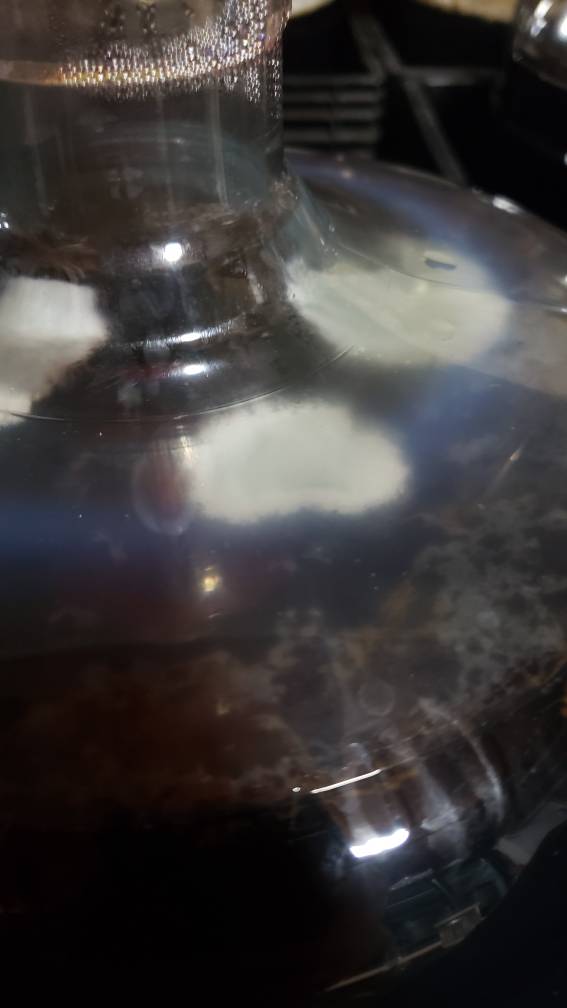- Joined
- Apr 6, 2017
- Messages
- 431
- Reaction score
- 95
I have mold growth on my cider. It's been in secondary for about 4 months? now and I just recently noticed the mold growing on the surface. I slightly surprised to be seeing mold and I'm curious if anyone who has had mold growth can tell me how their final product turned out? I'm simply going to rack from under the mold and continue to age it with less headspace in a glass carboy.
Yes... I know there is a lot of headspace.
Yes... I know it is an oxygen permeable vessel.
Someone was having a sale on cider kits (the cider house select ones). It's just cider not mango, raspberry or any other flavor.
The entire contents with water were boiled and chilled with an immersion chiller... Primary with wlp655 until I hit fg.
The plastic carboy, cap and airlock for secondary were all brand new and oversoaked in an over concentrated solution of starsan.
Obviously... This was an experiment... Using wlp655 with a cider from a kit.. Wasn't expecting much.... As the sugars are 100% fermentable the sacc would do all the work and there would be little or nothing for the Brett, lacto and pedio to actually do.
That being said... I'm still surprised by the mold growth.
Comments please....


Yes... I know there is a lot of headspace.
Yes... I know it is an oxygen permeable vessel.
Someone was having a sale on cider kits (the cider house select ones). It's just cider not mango, raspberry or any other flavor.
The entire contents with water were boiled and chilled with an immersion chiller... Primary with wlp655 until I hit fg.
The plastic carboy, cap and airlock for secondary were all brand new and oversoaked in an over concentrated solution of starsan.
Obviously... This was an experiment... Using wlp655 with a cider from a kit.. Wasn't expecting much.... As the sugars are 100% fermentable the sacc would do all the work and there would be little or nothing for the Brett, lacto and pedio to actually do.
That being said... I'm still surprised by the mold growth.
Comments please....




![Craft A Brew - Safale BE-256 Yeast - Fermentis - Belgian Ale Dry Yeast - For Belgian & Strong Ales - Ingredients for Home Brewing - Beer Making Supplies - [3 Pack]](https://m.media-amazon.com/images/I/51bcKEwQmWL._SL500_.jpg)























































